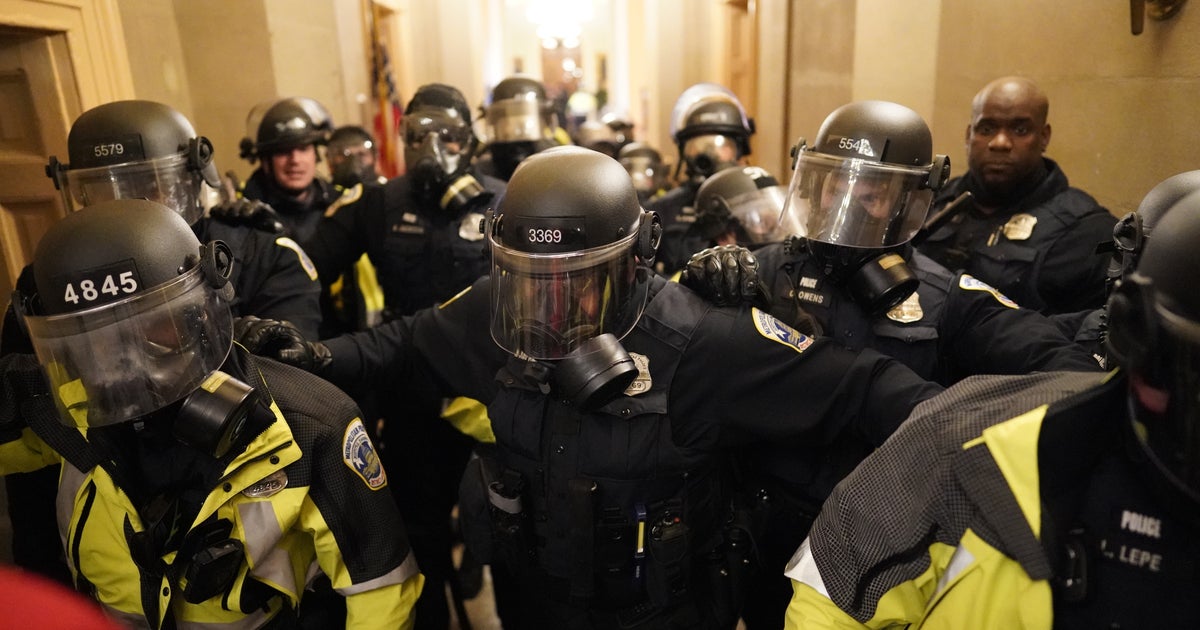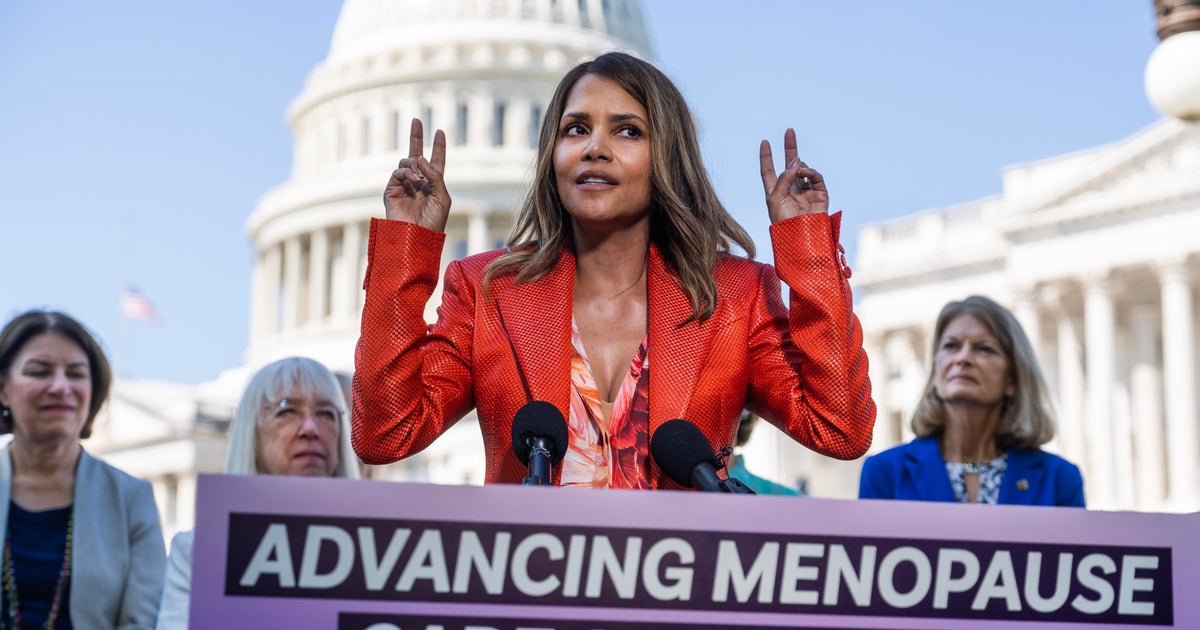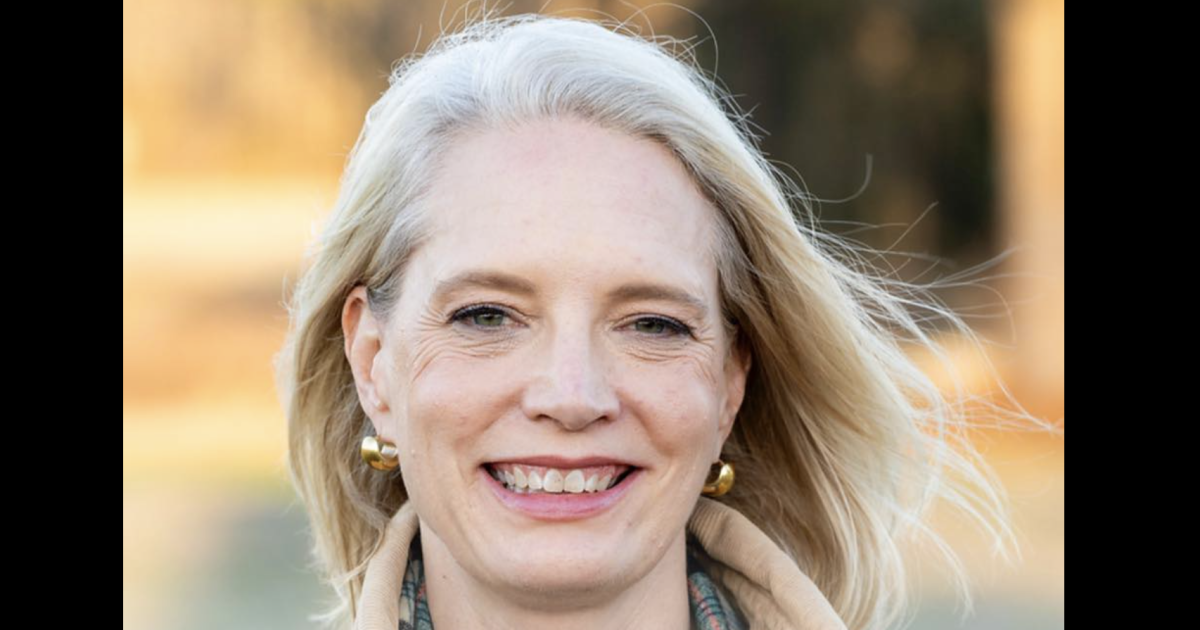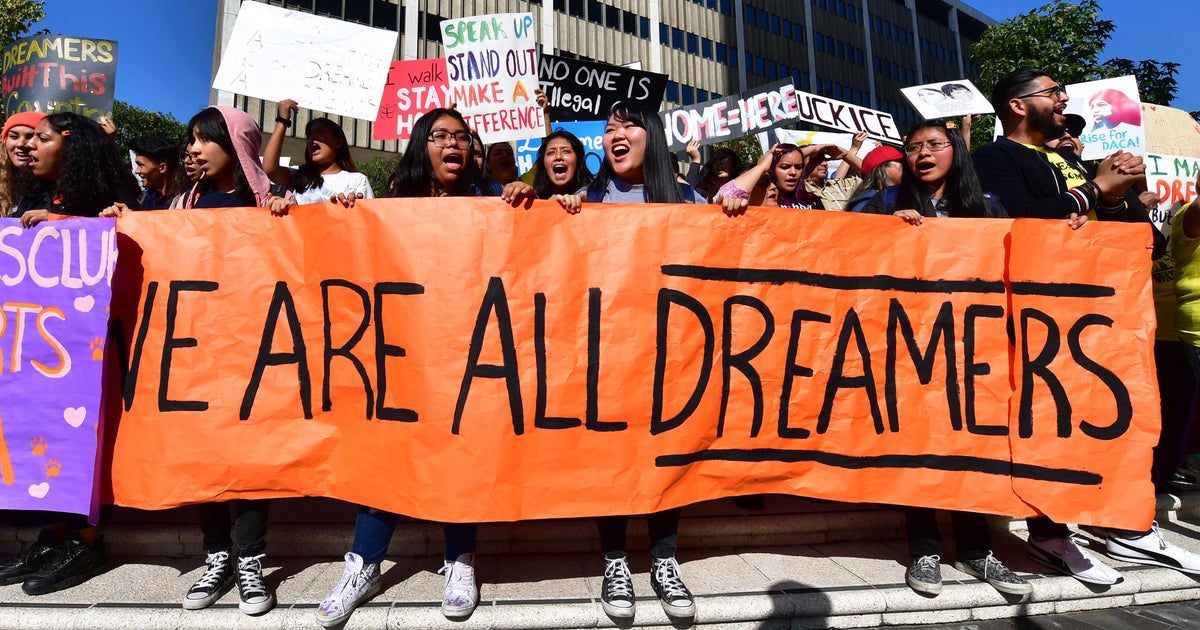The "Freedom Dividend": Inside Andrew Yang's plan to give every American $1,000
Go to an Andrew Yang campaign event and he'll tell you that, should he be elected president, he'll have the federal government give you $1,000 a month, $12,000 a year, no questions asked.
In reality, it might not be that simple.
Yang's signature policy proposal, the "Freedom Dividend," is a plan to provide what's called a universal basic income (UBI) of $1,000 a month to every American after they turn 18. But his policy asks Americans who already receive certain types of government assistance to forgo their benefits in order to receive cash payments. That particular requirement has raised eyebrows as Yang continues to inch up in the polls, drawing increased scrutiny from the media and voters in the process.
How it works
At an event in New Hampshire last month, Yang explained the Freedom Dividend's trade-off to a supporter who asked for clarification.
"The freedom dividend stacks on top of Social Security, it stacks on top of anything healthcare related, such as Medicare. It stacks on top of housing assistance," Yang replied. "The things it does not stack on top of are essentially cash and cash like benefits. So this is SNAP, heating oil, other programs that are essentially trying to put cash in your hands to manage an expense."
Yang has also said repeatedly that the Freedom Dividend would not touch existing benefit programs, and if someone on one of the "cash like" programs receives more from that arrangement than his Freedom Dividend they would not be required to switch to UBI. Still, he thinks most people would prefer the dividend.
"The vast majority of the recipients on those programs are getting less than $1,000. They're getting around $500 or $600. And it's restricted. And if you talk to them they live in fear of losing those benefits at any moment, because they are almost always reporting requirements, case managers and administration involved that they're afraid if they don't report or fill out the right form that they're going to lose it," Yang told reporters in September.
How it would be paid for
The trade-off is a key part of how a Yang administration would pay for a UBI. As Yang tells it, the government would take the money it saves from people opting out of certain programs and reinvest it into the Freedom Dividend. The campaign also says the broader impact the dividend will have on American society is factored into the price tag.
"Overall, the cost of the Freedom Dividend will be offset by new revenue, fiscal savings, and economic growth. Areas where we'll see fiscal savings include the reduction of healthcare costs, lower incarceration rates, reduced homelessness, and bureaucratic downsizing. Additionally, the Freedom Dividend will boost GDP, increase consumer spending, create jobs, and lead to more tax revenue," says S.Y. Lee, national press secretary for the Yang campaign.
The plan would also be funded through a 10% value added tax (VAT) — which taxes the value added to a consumer product from the point of origin to the point of sale — as well as new taxes on financial transactions, carbon emissions, tech companies and disruptive technologies like automation.
How Yang says it could become law
Yang says the policy is non-partisan and non-ideological, and insists that in a hypothetical Yang administration it would be an easy sell to lawmakers.
"Everyone knows I'm going to have won on the Freedom Dividend," Yang told a crowd of supporters in New Hampshire in October. Yang says Democrats will fall in line with their newly elected executive. His plan does seek to tackle the growing inequality gap in the United States and would tangentially have an impact on issues like climate change by taxing carbon.
At the same time, Yang says Republicans will also find a lot to like about universal basic income.
"What conservatives don't like is bureaucracies making everyone's decisions for them. They like economic freedom and independence and autonomy on the part of people," Yang said.
What the experts say
Instead of finding a happy medium between right- and left-wing visions of a UBI, Yang's policy is meeting resistance from UBI advocates from across the political spectrum.
"I think he doesn't necessarily make all the tough decisions that need to be made," said Michael Tanner, a senior fellow at the libertarian Cato Institute.
Tanner believes a UBI is a preferable alternative to the current welfare system for many of the same reasons as Yang, such as eliminating bureaucracy and disincentives to work. But, he says, he has not found a way to make the numbers add up and takes issue with the Freedom Dividend's funding mechanisms.
"He tries to go a little halfway on this. He wants to cancel out some programs but some programs he'll keep. The net result is this ends up costing a great deal of money - and then he has a number of tax increases to pay for it," Tanner said, adding the whole program could cost roughly $3 trillion. For context, the current federal budget is around $4 trillion. The Yang campaign points out that a country with a GDP close to $21 trillion has "the capacity to pay for the Freedom Dividend," but Tanner disagrees.
"In the end, you can't redistribute wealth that doesn't exist," Tanner said
UBI advocates on the left, however, think that that wealth does exist.
"We have this money. People are receiving it just because they own stuff, not because they're working," says Matt Bruenig, president of the People's Policy Project, a left-wing think tank.
Bruenig advocates for universal dividend from the "socialist angle" as a redistributive tool. He believes it can be paid for by applying "focused" taxes on the capital income of the richest Americans to provide revenue for a common fund. He points out that the adjusted net national income is more than $16 trillion.
"About 30 percent of the income that's paid out every year goes to people who own assets, receive stock dividends, earn interest, et cetera. There are a small sliver of people who receive this income, relatively speaking," says Bruenig. "You'd have to take 60 or 70 percent of it, and maybe you'll never get there, but even if you get part of the way there, I'm not a believer in an all-or-nothing '$1,000 a month."
Like Tanner, Bruenig thinks Yang's plan is not fully developed due to its approach to existing benefit programs. But unlike Tanner, Bruenig believes a UBI should be additive, not a replacement for the welfare state. He also believes Yang's criteria for what programs would stack with his Freedom Dividend, and which ones would not, is not clear or consistent enough.
"What about the earned income tax credit? What about the child tax credit?" Bruenig says. "These are refundable credits so you can get them in excess of your tax liability. You might only have $500 in liability but you can get $3,000 in EITC. You're not getting your money back. That's just a straight transfer. It's like food stamps or anything else, it's just administered through the IRS."
Most UBI plans look to supplement someone's income regardless of whether they work or collect government benefits. In this regard, Yang's plan somewhat more closely resembles the "negative income tax" proposed by the right-wing economist Milton Friedman, who looked to replace welfare with a UBI.
Others on the left are sympathetic to Yang's plan and agree that the problems it seeks to solve — such as stagnant wages — need to be addressed, but that key parts of Yang's plan are deal breakers.
"The people with the lowest income, who need this the most, are not actually going to benefit from it," says J.W. Mason, a fellow at the left-leaning Roosevelt Institute.
"It's basically saying the grant will be bigger for higher income folks."
Mason agrees that some of Yang's requirements would be destructive to people trying to improve their financial situation because it would reduce overall spending on social insurance programs. He also calls the VAT regressive in that it would impose a new tax on everyone regardless of income.
"A 10% VAT for people lower down the income ladder who spend pretty much everything they earn, that's basically a new 10% tax. If you're really getting $12,000 a year, you're probably coming out ahead on balance but you're getting less of a gain than people who save more of their income," Mason says.
The Yang campaign says the VAT would not apply to "staples" like clothes and scaled against luxury goods. The campaign also argues that the boost in consumer spending would offset the VAT's impact.
"While a VAT by itself might be regressive, a VAT and Freedom Dividend implemented together is progressive," says Lee.
"With the VAT helping to finance the Freedom Dividend, it effectively constitutes a raise or boost in spending power for the bottom 94 percent of Americans. $1,000 a month that goes straight into the hands of low-income Americans will go a lot further than those in higher income brackets."
But Mason argues a new tax model is completely unnecessary.
"There's a lot of cost to that kind of tax because it discourages production and employment," Mason says. "We've got a national income tax that actually works pretty well. We just need to stop cutting it for rich people and raise it. We have the whole machinery set up to do that."
Mason also thinks that the Freedom Dividend itself, like the VAT that funds it, is not entirely necessary.
"There's a lot of things government does well that we need more of in this country, like education, heath care and transportation," Mason says, adding, "It's not clear if you're going to be spending a lot of public money why you would want to just write people checks as opposed to have government do the sort of things that only government can do."
Some experts also say Yang's narrow emphasis on what amounts to a modest monthly stipend is inadequate given the nation's broader economic challenges, such as reversing mounting inequality and boosting worker wages.
But the Yang campaign argues UBI is an essential part of the solution.
"There is no silver bullet to the economic challenges we face. However, the Freedom Dividend is a big step in the right direction to ensure every American has a floor upon which to build from," says Lee.
"We need to move to the next stage of capitalism, a human-centered capitalism, where the market serves us instead of the other way around."
Why the Freedom Dividend still matters
While knocked by some experts, Yang's Freedom Dividend remains central to his growing appeal. Although still struggling in the polls, the New York entrepreneur recently raised $10 million for his campaign, outpacing many of his rivals for the Democratic nomination. He also continues to qualify for the Democratic presidential debates, unlike some seasoned lawmakers, including Colorado Senator Michael Bennet and Montana Governor Steve Bullock.
Most political observers agree that the chances of Yang winning the Democratic nomination are still very small. But regardless of his electoral chances, it's clear that his UBI proposal resonates with some Americans, and it's helped him cultivate a fiercely devoted fan base. Analysts may balk at the wisdom or feasibility of his Freedom Dividend, but for the time being, Yang has succeeded in giving what was a relatively obscure idea a place on the political stage.
Moderators at the fourth Democratic Presidential Debate brought up universal basic income during a discussion about ways to support struggling workers, asking candidates like Massachusetts Senator Elizabeth Warren and New Jersey Senator Cory Booker to debate its merits. The idea even received outright support from Hawaii Congresswoman Tulsi Gabbard and Former Housing and Urban Development Secretary Julian Castro.
"Our economy functions much better when we have money to spend, where we can participate in the market, where businesses are responsive to us," Yang recently told CBS Sunday Morning.
"We'll start more businesses. We'll be able to change jobs more easily. So, the money doesn't disappear in our hands. It creates a trickle-up economy from our people, our families, and our communities up."



